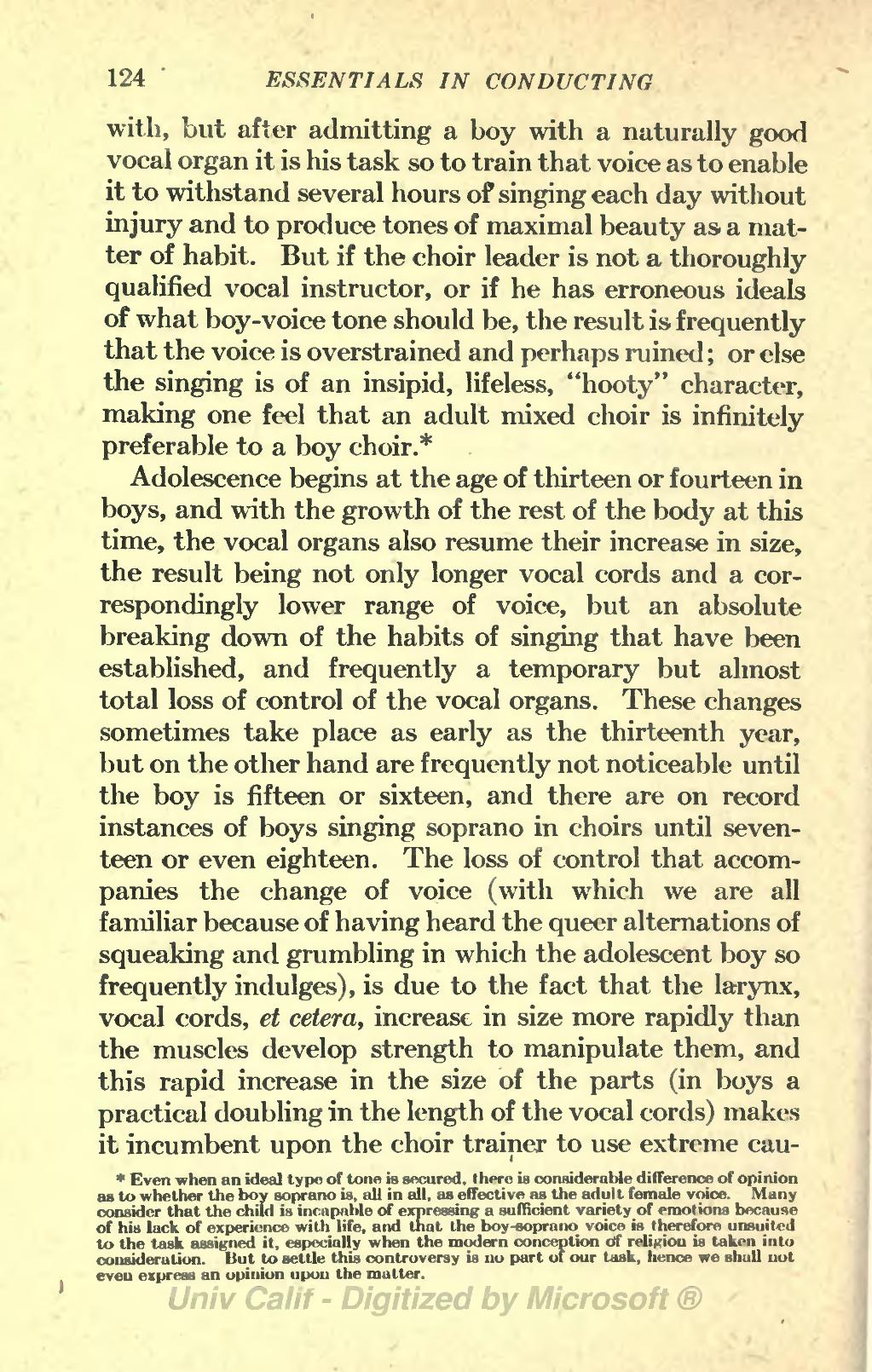with, but after admitting a boy with a naturally good vocal organ it is his task so to train that voice as to enable it to withstand several hours of singing each day without injury and to produce tones of maximal beauty as a matter of habit. But if the choir leader is not a thoroughly qualified vocal instructor, or if he has erroneous ideals of what boy-voice tone should be, the result is frequently that the voice is overstrained and perhaps ruined; or else the singing is of an insipid, lifeless, "hooty" character, making one feel that an adult mixed choir is infinitely preferable to a boy choir.[1]
Adolescence begins at the age of thirteen or fourteen in boys, and with the growth of the rest of the body at this time, the vocal organs also resume their increase in size, the result being not only longer vocal cords and a correspondingly lower range of voice, but an absolute breaking down of the habits of singing that have been established, and frequently a temporary but almost total loss of control of the vocal organs. These changes sometimes take place as early as the thirteenth year, but on the other hand are frequently not noticeable until the boy is fifteen or sixteen, and there are on record instances of boys singing soprano in choirs until seventeen or even eighteen. The loss of control that accompanies the change of voice (with which we are all familiar because of having heard the queer alternations of squeaking and grumbling in which the adolescent boy so frequently indulges), is due to the fact that the larynx, vocal cords, et cetera, increase in size more rapidly than the muscles develop strength to manipulate them, and this rapid increase in the size of the parts (in boys a practical doubling in the length of the vocal cords) makes it incumbent upon the choir trainer to use extreme cau-
- ↑ Even when an ideal type of tone is secured, there is considerable difference of opinion as to whether the boy soprano is, all in all, as effective as the adult female voice. Many consider that the child is incapable of expressing a sufficient variety of emotions because of his lack of experience with life, und that the boy-soprano voico is therefore unsuitced to the task assigned it, especially when the modern conception of religion is taken into consideration. But to settle this controversy is no part of our task, hence we shall not even express an opinion upon the matter.
